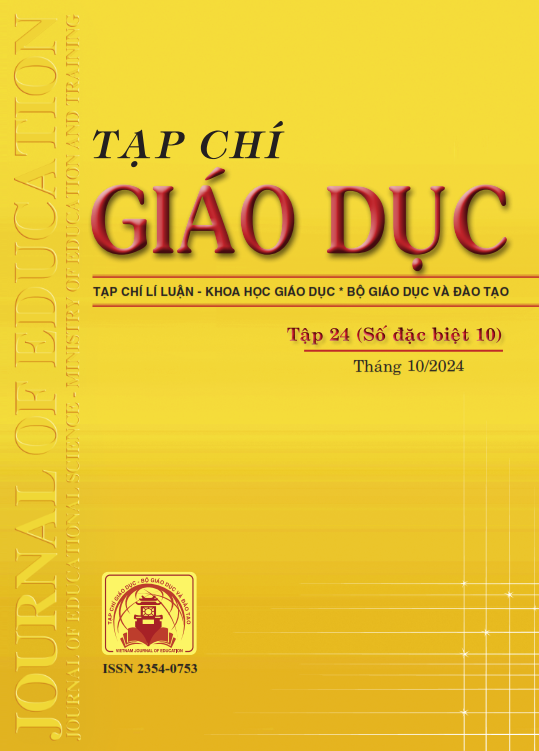Nhận thức của người học ngoại ngữ đối với việc sử dụng ứng dụng loora trong việc học nói tiếng Anh bên ngoài lớp học: Nghiên cứu tại Trường Đại học Sư phạm Hà Nội 2
- Từ khóa:
- Loora
- EFL learners
- speaking skills
- student autonomy
Tóm tắt
Loora, a recently developed Artificial Intelligence (AI)-driven language learning application, acts as a personal AI tutor for English speaking in dialogues and receives feedback on grammar, pronunciation, and fluency. Drawing on the experiences of English as a Foreign Language (EFL) learners outside the traditional classroom setting, the research, therefore, explores the perceptions, challenges, and opportunities presented by Loora. The study employed questionnaires and semi-structured interviews as the main instruments to collect the data from 20 participants. According to preliminary results, Loora has a great deal of promise for promoting student autonomy and ongoing language development by offering quick and customized feedback in speaking practice. The research also emphasizes the necessity for additional investigation to deal with potential drawbacks and to maximize the use of AI tools like Loora in language learning. It implies that Loora can be used as a complementary tool to use along with the traditional classroom to shed light on the process of English speaking. Additionally, this study adds to the expanding corpus of research on the application of AI to language acquisition and offers insightful information to language learners, educators, and AI developers.
Tài liệu tham khảo
Bộ GD-ĐT (2018). Chương trình giáo dục phổ thông môn Tiếng Anh (ban hành kèm theo Thông tư số 32/2018/TT-BGD-ĐT ngày 26/12/2018 của Bộ trưởng Bộ GD-ĐT).
Braun, V., & Clarke, V. (2019). Reflecting on reflexive thematic analysis. Qualitative Research in Sport, Exercise and Health, 11(4), 589-597. https://doi.org/10.1080/2159676X.2019.1628806
Bryman, A. (2016). Social research methods (5th ed.). Oxford University Press.
Đinh Thị Mỹ Hạnh, Trần Văn Hưng (2021). Trí tuệ nhân tạo trong giáo dục: Cơ hội và thách thức đến tương lai của việc dạy và học ở trường đại học. Tạp chí Khoa học và Công nghệ, Đại học Đà Nẵng, 19(2), 38-42.
Hoang, V. V. (2023). The place of grammar in the General Education English Curriculum and the problems of translating grammar contents from curriculum to textbooks. VNU Journal of Foreign Studies, 39(3), 1-20.
Kim, N.-Y., Cha, Y., & Kim, H.-S. (2019). Future English learning: Chatbots and artificial intelligence. Multimedia Assisted Language Learning, 22(3), 32-53. https://doi.org/10.15702/mall.2019.22.3.32
Lewis, M., & McCook, F. (2002). Cultures of teaching: Voices from Vietnam. ELT Journal, 56(2), 146-153.
Sharples, M., & Beale, R. (2003). A technical review of mobile computational devices. Journal of Computer Assisted Learning, 19(3), 392-395. https://doi.org/10.1046/j.0266-4909.2003.00040.x
Suciati, S. (2021). Favourite artificial intelligence-based speaking applications for autonomous learning. UNNES-TEFLIN National Seminar, 4(1), 205-214.
Tran, T. M. L., & Nguyen, T. T. H. (2021). The impacts of technology-based communication on EFL students’ writing. AsiaCALL Online Journal, 12(5), 54-76.
Đã Xuất bản
Cách trích dẫn
Số
Chuyên mục
Giấy phép

Tác phẩm này được cấp phép theo Ghi nhận tác giả của Creative Commons Giấy phép quốc tế 4.0 .












